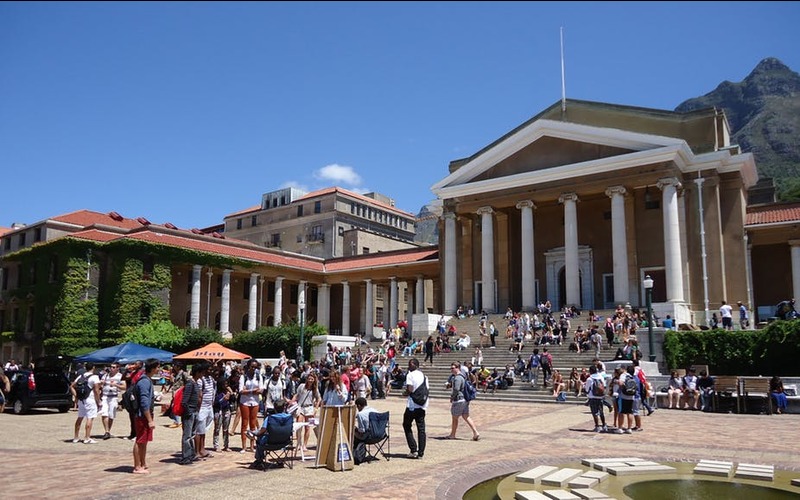How to transform student support efforts
27 October 2017 | Story Gideon Nomdo.
South Africa’s universities have created a number of programmes to address the historic – and still existing – imbalance between black and white students.
Black students are more likely than their white peers to drop out without completing their degrees. Many experience deeply rooted institutional racism. (I use the word “black” here in the South African context to include everybody who was classified as African, Coloured and Indian under apartheid.)
And so each year about 15% of those students entering higher education do so through equity development programmes. These take several different forms, such as the academic development programmes and the extended curriculum programmes, which extend regular undergraduate study by one year.
All are designed to help talented but under-prepared students with financial, academic and mentoring support.
These development programmes have made it possible for “tens of thousands of students” to enter tertiary institutions since 1994. Success rates, especially for extended curriculum programmes, are high.
But this success comes at a cost. My research and experience of working on an undergraduate fellowship programme at the “historically white” University of Cape Town has shown how participation in development programmes profoundly affects black students’ sense of identity and their feelings of self-worth.
Students experience intense feelings of discomfort, confusion and even embarrassment at being classified as “different” and an “anomaly” alongside the norm of white academic success.
Apartheid’s racist legacy
Development programmes are designed to facilitate students’ non-discriminatory access into higher education. They also aim to promote the “transformation of institutional cultures” at historically white universities.
Students are placed in the programmes based on their final high school grades as well as national benchmark tests. These results determine university placement as well as whether extra academic support is needed.
The majority of students who enter these programmes are black – and so they enter historically white universities with the labels “African”, “Coloured”, “Indian” or “previously disadvantaged” stamped on their existence – labels that symbolise “deficit”, serving to distinguish black students from the accepted norms of white academic success.
But this feeling of otherness doesn’t only exist with relation to whiteness. The vexed issue of racial classification takes centre stage. One student said:
I thought I would be accepted as a black person ... but I found ... I was ‘other’ and I was ‘Coloured’ – and that was a revelation and it’s a root of lots of resentment and disillusionment on my part.
Being “black”, then, is not a homogeneous experience. Terms such as “disadvantage”, “transformation” and “black identity” have different meanings for African, Coloured and Indian students. This is a consequence of apartheid’s hierarchy of race categories under which Coloureds and Indians enjoyed better privileges than Africans.
So from the outset it seems impossible that these students can attain a sense of belonging.
But my research and experience have shown that this needn’t be the case. If development programmes take on the fact that students are operating in uncomfortable, emotionally charged environments, the programmes can be turned into spaces that are productive and where students can develop a true sense of belonging.
This means actively engaging and encouraging critical discussion about issues of race, class, identity and citizenship in white-dominated spaces.
The undergraduate fellowship programme, on which I based my research, has shown that this is possible.
A case study of success
The fellowship programmes is small – only five fellows are selected for the programme each year.
Fellows operate in a close-knit network which facilitates critical debates about race. In this environment students are able to raise and confront tough, uncomfortable questions. The programme acknowledges the varied experiences and perceptions of the world that its fellows bring along. These differences are used as a basis for collaborative peer engagement and for creating a sense of common purpose and belonging.
Another core aspect of programme is mentorship. Each student selects an academic mentor – a specialist in a particular discipline who is responsible for inducting the student into that field. Mentors guide, facilitate and create opportunities for student advancement.
Funding is important too. The fellowship is largely funded by international organisations and is well resourced, allowing students to travel to local and international fellowship conferences, have access to specialised mentoring, research writing retreats and funds to repay some student debt on completing their PhDs.
This approach creates a shift in perception: black identity comes to be viewed in terms of how one feels, in the words of German philosopher Martin Heidegger, about one’s existence and sense of “being in the world”. This allows for opportunities to create a more confident, authentic sense of “being” human that allows, as Heidegger puts it “one to feel at home within oneself”.
Lessons
Of course, there is no single perfect approach for developing equity within higher education. But the lessons from my research show how important it is to create spaces for reflecting on student experiences and perceptions of higher education.
Extended development programmes shouldn’t try to sanitise contentious issues. Instead, they should embrace the discomfort of engaging students about the necessity of the programmes and how they are meant to contribute to transformation agendas.
![]() Taking ownership in this way provides a platform for students to generate their own sense of belonging.
Taking ownership in this way provides a platform for students to generate their own sense of belonging.
Gideon Nomdo, Course coordinator: Language in Humanities, University of Cape Town.
 This work is licensed under a Creative Commons Attribution-NoDerivatives 4.0 International License.
This work is licensed under a Creative Commons Attribution-NoDerivatives 4.0 International License.
Please view the republishing articles page for more information.










